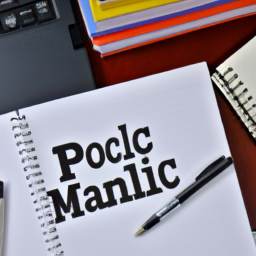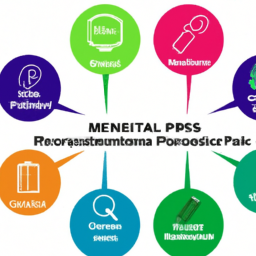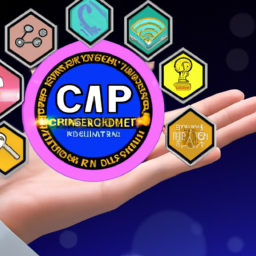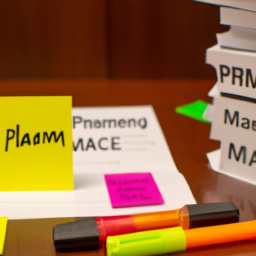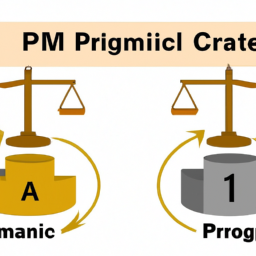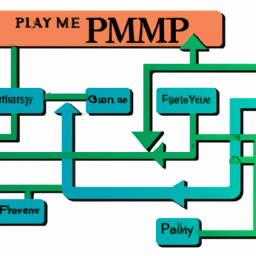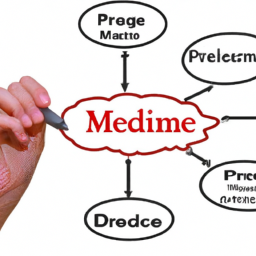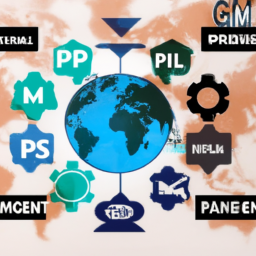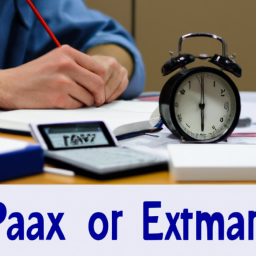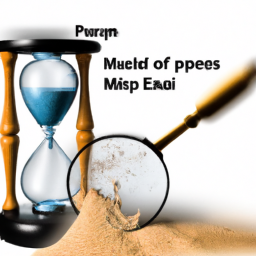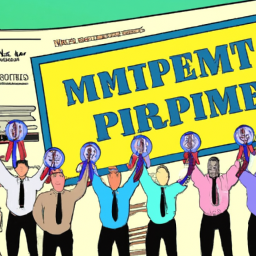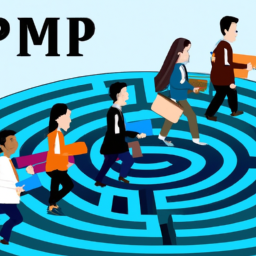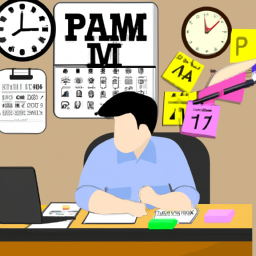Are you preparing for the PMP exam and feeling overwhelmed by the sheer amount of information you need to cover?
Well, fret no more! In this article, we will reveal the 5 PMP exam topics that you absolutely cannot afford to ignore.
From Project Integration Management to Project Quality Management, we will delve into each topic with a knowledgeable, thorough, and experienced approach.
So, get ready to ace the exam and boost your project management career to new heights!
Key Takeaways
- Project Integration Management is crucial for the success of a project, involving tasks such as developing the project charter and managing project work.
- Project Scope Management involves defining project boundaries, controlling project scope, and communicating scope changes to stakeholders.
- Project Time Management includes tasks like scheduling tasks, monitoring progress, and adjusting timelines.
- Project Cost Management involves developing a cost estimation plan, implementing cost control measures, and establishing clear communication channels.
Project Integration Management
Project Integration Management is crucial for successfully coordinating and integrating all project activities. As a project manager, you must have a comprehensive understanding of this knowledge area to ensure project success.
Project Integration Management involves processes such as developing the project charter, creating the project management plan, and directing and managing project work. It also encompasses project procurement management, which involves acquiring goods and services from external sources, and project stakeholder management, which focuses on identifying and engaging stakeholders throughout the project lifecycle.
By effectively managing project integration, you can ensure that all project components work together seamlessly, minimizing risks and maximizing outcomes. This knowledge area is essential for delivering projects on time, within budget, and meeting stakeholder expectations.
Therefore, mastering Project Integration Management is vital for your success as a project manager.
Project Scope Management
Don’t overlook the importance of managing scope in your projects. It is a crucial aspect of project management that ensures your project stays on track and meets its objectives.
Project scope management involves defining, controlling, and validating the boundaries of your project. By clearly defining what is included and what is not, you can avoid scope creep and keep your project focused.
This is especially important when it comes to project risk management and project communication management. By managing scope effectively, you can identify potential risks and communicate them to stakeholders in a timely manner.
This helps in making informed decisions and taking appropriate actions to mitigate risks. So, make sure to pay attention to project scope management to ensure the success of your projects.
Project Time Management
Make sure to prioritize time management in your projects by using techniques such as scheduling and monitoring to ensure timely completion. Project scheduling involves creating a timeline and allocating resources to different tasks. It helps in identifying the critical path, which is the sequence of activities that determines the project’s duration. Critical path analysis is a technique that determines the longest path through a project, ensuring that any delay in the critical path will delay the overall project. By using project scheduling and critical path analysis, you can effectively manage your project’s time and ensure that it stays on track. It allows you to identify potential bottlenecks and make necessary adjustments to meet deadlines. Don’t underestimate the power of time management in project success.
| Techniques for Project Time Management | Benefits |
|---|---|
| Scheduling | Ensures tasks are completed on time |
| Critical Path Analysis | Identifies the longest path in the project |
| Monitoring | Allows for tracking of progress and adjustments to timeline |
Project Cost Management
Ensure that you accurately estimate and control project costs to keep your budget on track. Project Cost Management is a crucial aspect of project management that requires careful planning and monitoring. Here are three key strategies to help you effectively manage project costs:
-
Develop a comprehensive cost estimation plan: This involves identifying all the project costs, such as labor, materials, and equipment, and creating a detailed plan to estimate and track these costs throughout the project lifecycle.
-
Implement effective cost control measures: Regularly monitor and control costs by comparing actual expenses with the budgeted costs. Use tools such as Earned Value Management to assess project performance and make necessary adjustments to stay within budget.
-
Utilize project risk management and communication management: Identify potential risks that may impact project costs and develop contingency plans to mitigate these risks. Additionally, establish clear communication channels to ensure effective collaboration and information exchange among team members and stakeholders.
Project Quality Management
To effectively manage project quality, it’s important to establish clear quality objectives and implement quality assurance processes. Project quality management involves ensuring that the project meets the defined quality standards and satisfies the customer’s requirements. This requires careful planning, monitoring, and control throughout the project lifecycle.
In project quality management, you need to identify and prioritize the potential risks that may impact the quality of the project deliverables. By conducting a thorough risk assessment, you can develop strategies to mitigate these risks and ensure that the project quality remains high.
Additionally, effective communication is crucial in project quality management. You need to establish clear channels of communication with stakeholders to ensure that everyone is aligned on the quality objectives and expectations. Regular and transparent communication helps to address any quality concerns promptly and make necessary adjustments to maintain the desired project quality.
Frequently Asked Questions
What Are Some Common Challenges Faced in Project Integration Management?
Common challenges faced in project integration management include preventing scope creep and ensuring that all project components are properly coordinated and integrated.
Scope creep refers to the tendency for project scope to expand beyond its original boundaries, leading to increased costs and delays.
Additionally, coordinating and integrating various project elements can be challenging due to factors such as conflicting priorities, lack of communication, and resistance to change.
Overcoming these challenges requires careful planning, effective communication, and proactive management.
How Does Project Scope Management Help in Preventing Scope Creep?
Preventing scope creep is essential in project scope management. By implementing proper change control processes, you can ensure that any changes to the project scope are carefully evaluated and approved.
This helps to maintain the project’s focus and prevents unnecessary additions that could lead to scope creep. Without effective project scope management, it becomes challenging to keep the project on track and deliver the desired outcomes.
Therefore, understanding the importance of change control is crucial in preventing scope creep.
What Are the Key Factors to Consider While Estimating Project Durations in Project Time Management?
When considering project time estimation and the factors affecting project durations, it is crucial to take into account various key factors.
These factors can include the project’s complexity, the availability of resources, the project team’s skills and experience, and any external dependencies.
By carefully considering these factors, you can make more accurate and realistic estimates for project durations.
This will help ensure that your project stays on track and avoids any delays or unexpected challenges.
How Can Project Cost Management Help in Controlling Project Budgets?
Controlling project budgets is crucial for successful project management. By using project cost management techniques, you can effectively monitor and manage the financial aspects of your project.
This includes estimating costs, creating budgets, and tracking expenses. Project cost management helps you identify potential risks and make informed decisions to mitigate them.
Additionally, it ensures effective stakeholder management by providing accurate and transparent information about project costs, helping build trust and collaboration.
Overall, project cost management is essential for keeping your project on track and within budget.
What Are the Different Techniques Used in Project Quality Management to Ensure High-Quality Deliverables?
To ensure high-quality deliverables in project quality management, you need to employ various techniques.
Quality control techniques involve performing inspections, audits, and testing to identify and address defects.
On the other hand, quality assurance techniques focus on preventive measures like developing quality management plans, conducting process analysis, and implementing quality improvement initiatives.
Conclusion
Congratulations! You have successfully navigated through the vast terrain of the PMP exam topics. Just like a seasoned explorer, you have delved deep into the realms of Project Integration Management, Project Scope Management, Project Time Management, Project Cost Management, and Project Quality Management.
These topics are the compass that guides your project management journey, ensuring success and avoiding pitfalls. Remember, each topic is like a precious gem, shining bright with the potential to transform your project into a masterpiece.
So, embrace these topics with open arms, for they hold the key to unlocking your true potential as a project manager.

